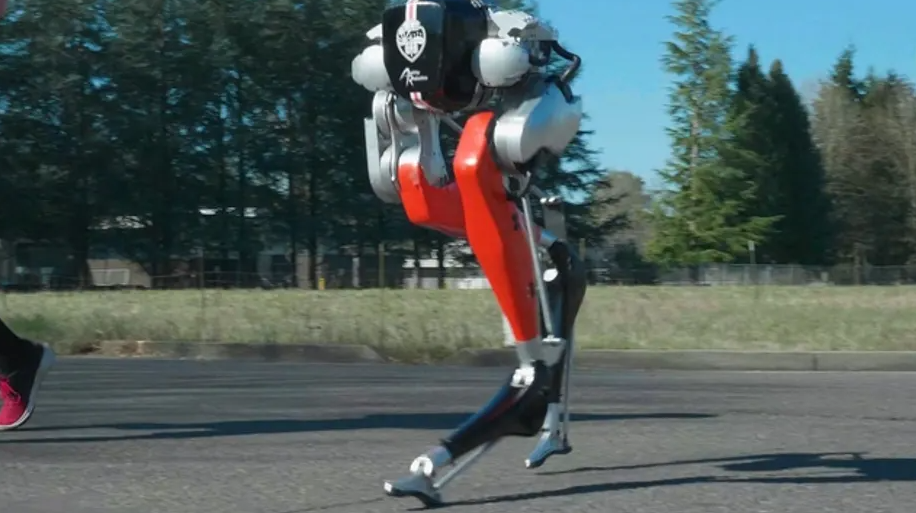This past Tuesday, researchers out of Oregon State University (OSU) issued an announcement that their new bipedal robot, which has been dubbed Cassie, officially set a brand new Guinness World Record for the running of a 100-meter dash.
An invention of the university’s College of Engineering and built by Agility Robotics, Cassie managed to blaze past the finish line with a time of 24.73 seconds at the OSU Whyte Track and Field Center, setting a record for the speed of a bipedal robot.
Within that time frame, Cassie kicked things off by standing in an upright position and managed to complete the race in the same way without a single fall.
Alan Fern, a computer science professor for OSU that collaborated with the research and development team for the robot, explained Cassie to KLCC as a robot that did not possess arms, eyes, or even a head and “just has legs and basically a little torso.”
“So Cassie can get around by just feel, more or less,” explained Fern.
Despite this, Fern stated to the university’s media that the act of stopping and starting via a standing position makes for a much harder task than the actual running — similar to just how taking off and landing are the hardest part of trying to pilot an airplane.
“This 100-meter result was achieved by a deep collaboration between mechanical hardware design and advanced artificial intelligence for the control of that hardware,” explained Fern.
As stated by OSU news, Cassie trained for over one year via a simulation setting almost a full week of computing technique labeled parallelization, which simultaneously utilizes multiple processes and calculations.
“Cassie has been a platform for pioneering research in robot learning for locomotion,” explained the leader of the project, Devin Crowley, to OSU News.
Before breaking this new world record, Cassie was also able to run a 5k in just over 53 minutes this past year.
Crowley explained that the completion of the 5k only highlighted the reliability and endurance of their Robo-athlete, which has many of the team’s researchers wondering just how fast Cassie could actually run.
“That led the research team to shift its focus to speed,” explained Crowley.
As the chief technology officer for Agility Robotics and a robotics professor for Oregon State, Jonathan Hurst stated to the university media that being acknowledged by Guinness World Records, which marks itself as the ultimate authority on record-breaking achievements, is “a big watershed moment.”
“This may be the first bipedal robot to learn to run, but it won’t be the last,” he stated. “I believe control approaches like this are going to be a huge part of the future of robotics.”
Hurst explained that the most exciting part of this event is the potential.
“Using learned policies for robot control is a very new field, and this 100-meter dash is showing better performance than other control methods,” stated Hurst. “I think progress is going to accelerate from here.”
Hurst led the research team for Cassie via a 16-month, $1 million grant from the Defense Advanced Research Projects Agency (DARPA), which was also funded by the National Science Foundation.
The website for Guinness World Records reports that several other titles for fast robots do exist, “but this one is based on a standard competitive human task. It is not just a measure of momentary top-speed.”
“It is effectively average speed sustained across a certain distance and under the significant constraints that it must start in a standing pose and return to that pose after crossing the finish line,” explained the website. “It cannot simply run 100 metres and crash.”
Cassie officially set the new record as of May 11, 2022.
Despite her speed for a robot, and the record-shattering achievements made by her team of researchers in computer science and technology, they are still not very close to human speeds.
Currently, Usain Boly holds the record for the 100-meter dash for his time set during the 2009 World Athletics Championship race at 9.58 seconds.
Cassie the robot, invented at @EngineeringOSU and produced by OSU spinout company @agilityrobotics, has established a Guinness World Record @GWR for the fastest 100 meters by a bipedal robot: https://t.co/NADorse8GY pic.twitter.com/ingh8iPXOu
— Oregon State News (@oregonstatenews) September 27, 2022

